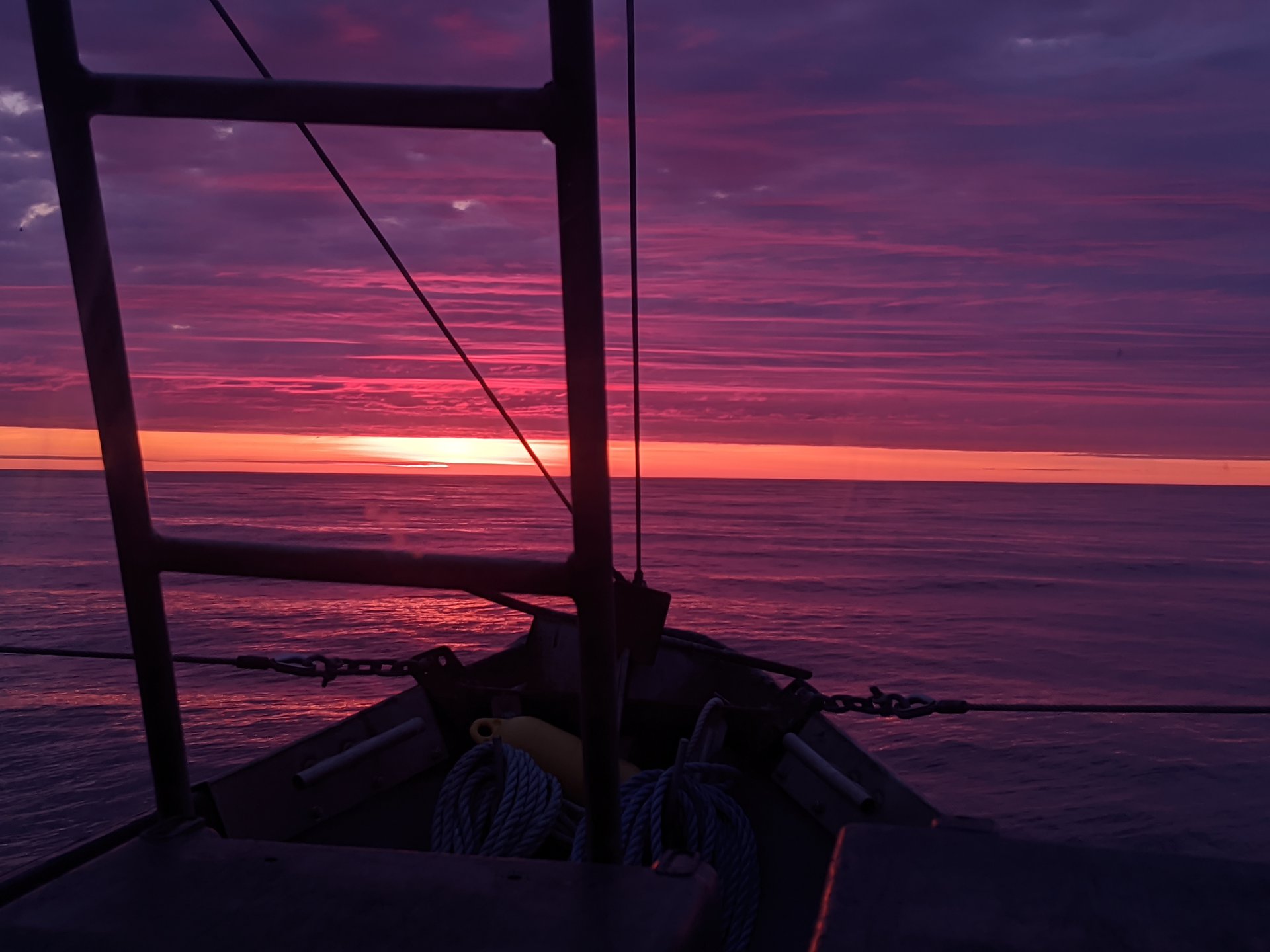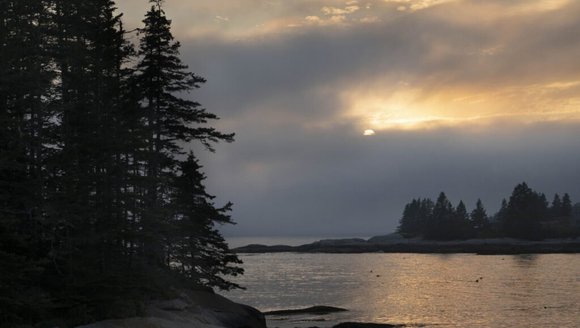Wishes for the Gulf of Maine
Perspectives | Oct 29, 2020
by Andrew Pershing, Ph.D.
Adjunct Scientist & Former Chief Scientific Officer
In a goodbye message to the GMRI community, departing Chief Scientific Officer Dr. Andrew Pershing shares his wishes for the Gulf of Maine.

I started studying the Gulf of Maine when I was in college. Other than a brief summer fling with limnology, I’ve spent my whole career studying the Gulf, especially how physical conditions impact animals, including humans. While I expect I’ll always have some scientific connection with the Gulf of Maine, I’ll soon start a new position as the Director of Climate Science at Climate Central, where I’ll be focused on supporting efforts to deepen discussions of climate change in the media and society.
I came to Maine 14.5 years ago as a joint appointment between the University of Maine and GMRI and went on to serve as GMRI’s Chief Scientific Officer (CSO) from 2014 until now. This has been a fantastic place to be a scientist; I had the chance to work on problems that are both scientifically interesting and relevant to society. I’m especially proud of how my colleagues and I were able to describe how the Gulf’s intense warming trend and frequent marine heatwaves have impacted and will impact the ecosystem and fisheries in the region. While our work has immediate relevance to fisheries in New England, our work also gets at broader questions of how we adapt to climate trends around the world.

When I started as CSO, my predecessor John Annala left me an original 1953 edition of Bigelow and Schroeder’s “Fishes of the Gulf of Maine.” This is a classic book with detailed descriptions and illustrations of the fish that inhabit these waters. I will be leaving this book behind for future CSOs, beginning with Graham Sherwood who will be stepping in as interim CSO.
While I have no fishes to give, I would like to leave GMRI with three wishes for the Gulf of Maine:
Wish 1: More cod, please
I’ve learned a lot about cod from working at GMRI. They are an amazing fish that once dominated North Atlantic ecosystems. My colleagues and I helped show how warming in the Gulf of Maine was bad news for Gulf of Maine cod. Our work is as much about people as it is about fish. If we had clued-in to the temperature effects sooner, we could have blunted the impact of warming on cod and the communities that depended on it.
While the Gulf of Maine will continue to warm, there is still hope for cod. If fishing pressure is matched to the ecosystem, then we could have a lot more cod. Even under the warmest scenarios, we could have a fishery that is more productive than what we had in the early 2000s. GMRI’s Lisa Kerr, along with colleagues at NOAA and Rutgers are launching a new project to bring more climate information into fisheries management. This project is an essential step toward making sure cod and other fish in the Gulf of Maine can thrive.

Wish 2: Keep counting copepods
The classic North Atlantic food chain starts in the spring with an explosive bloom of phytoplankton. These single-celled algae support huge swarms of Calanus finmarchicus, a rice grain-sized crustacean called a copepod.
Calanus is a strong contender for the most abundant animal species on the planet and in the Gulf of Maine. Basically, if you are an animal in the Gulf of Maine, you are probably a Calanus. And, if you aren’t Calanus, you probably eat them at some point in your life. Understanding Calanus is critical to understanding the status of the Gulf of Maine ecosystem.
There are disturbing signs that Calanus is declining. Right whales are specialized Calanus predators. We are seeing fewer right whale calves born each year, an indication that they are not getting the nutrition they need. Herring, another Calanus specialist, has also become less productive, with consequences for the ecosystem (if you’re an animal in the Gulf of Maine who doesn’t eat Calanus, you almost certainly eat herring) and for the herring fishery.
Understanding changes at the bottom of the food web is essential. One of the bright spots in 2020 was the news that NOAA is restarting the continuous plankton recorder (CPR) survey in the Gulf of Maine. The CPR is the best tool we have for keeping tabs on Calanus and other critical plankton species.
Wish 3: Embrace the future

One of the most insidious aspects of climate change is that it is relentless. Even after we cut carbon emissions to zero, warming will continue for about a decade. Sea levels will continue to rise for a century or more. This means that not only will we have to adapt to future changes, we will need to keep adapting and adjusting.
One silver lining of climate change? It actually makes the world more predictable. We know our oceans will continue to warm, acidify, and rise. Understanding these trends and making smart bets on them will be a reliable strategy going forward.
But, we can do even better than just assuming trends will continue. Climate scientists, including those whose work continues at GMRI, have developed sophisticated computer models that project how conditions across the planet will change under different carbon emissions scenarios. These models provide a more detailed view of the physical conditions in the future. My colleagues and I have used these models to make long-range projections for lobster, cod, and many other fish species in the Northeast.
The big challenge is how to use this information to make decisions. This is a challenge that goes beyond the ocean and beyond the Gulf of Maine. It is also the challenge that GMRI’s new climate center is taking up—working with communities and businesses around the Gulf of Maine to make climate projections locally relevant and then to use that information to make adaptive decisions.
There are many things I will miss about GMRI and Maine, and I’m glad to have had a few moments over the last few weeks to say farewell to my dear colleagues and friends. As tempting as it is to be nostalgic, if there is one thing I’ve learned from studying the Gulf of Maine it is the importance of looking to the future.



